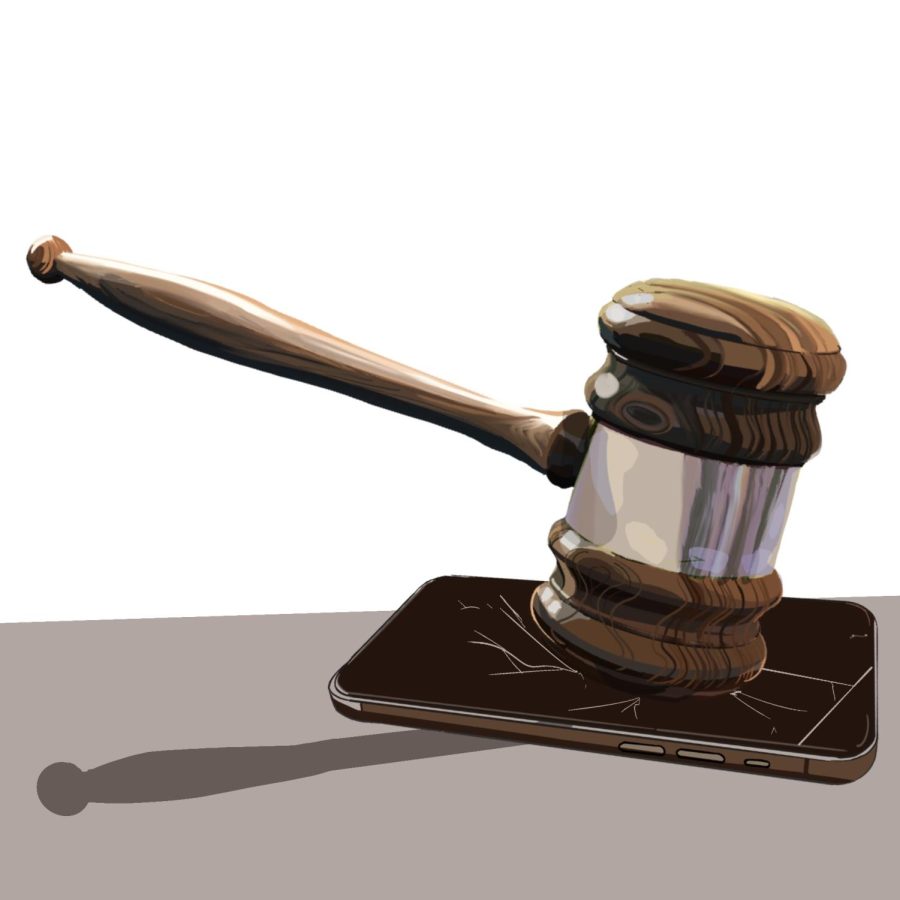The U.S. considers banning TikTok, North Carolina residents weigh in on the issue
April 6, 2023
Members of Congress consider banning TikTok in the interest of national security, inviting citizens to debate about whether or not the ban will affect personal rights in the future or if it’s imperative for citizen safety.
Parker Adamovich, 20, has used and enjoyed the TikTok app in the past. However, he recently expressed some concerns about the data being sourced from users.
“Most of the time I’m pretty unbothered by it. However, in the case of TikTok and how it can access and change files, location data and even track you, it does cause me some concern,” Adamovich said.
Florida Senator Marco Rubio introduced the ANTI-SOCIAL CCP Act in December 2022. The bill would effectively ban TikTok, ByteDance and any future sites that pose similar threats.
“Granted if they ban it, it can set a precedent for future bannings, but individuals still have the ability to use VPNs, Tors, or even file transfers to obtain the app if they want it badly,” Adamovich said.
The bill intends to “protect Americans from the threat posed by certain foreign adversaries,” such as surveillance, exposure of sensitive data, the spread of influence campaigns, propaganda and censorship according to Congress.
“Certain members of our Senate and Congress have shown they will attempt to ban anything they deem ‘immoral’ and honestly they are quite loose on their interpretation of morality,” Adamovich said.
The ANTI-SOCIAL CCP Act allows the president to prohibit the use of social media owned and managed by countries of concern to the U.S. government. According to Florida’s 5th Congressional District, this would allow other apps to be banned by the executive branch as well.
“TikTok might be reasonable considering the national security risks, but who’s to say some senator won’t get butthurt about another app and attempt to ban it,” Adamovich said.
The No TikTok on the Government Devices Act introduced by Congressman Ken Buck and Senator Josh Hawley in December 2022. This bill requires the social media video application TikTok to be removed from the information technology of federal agencies.
“To add a little more perspective, TikTok is prohibited by the Armed Forces of Ukraine for the sheer operational security risks. In the early days of conflict, ukrainians were able to geolocate Russian artillery positions because somebody made a post on TikTok and vice versa,” Adamovich said.
According to Colorado’s 4th Congressional District, both acts work in the interest of eliminating the ability of the Chinese government to access U.S. user data for intelligence, microtargeting, deepfakes, blackmail, or any outside manipulation.
“With the ever increasing global tensions, especially in East Asia, OPSEC becomes increasingly more important and US service men/women with access to the app could become a major OPSEC liability,” Adamovich said.
According to the Brookings Institute, many public universities have employed similar prohibitions. University of Iowa, Oklahoma, Texas and Georgia have all banned the use of TikTok on university-issued phones when on-campus using campus Wi-Fi.
NC State sophomore Alyssa Hawkins said she’s not concerned with the security of the app, but rather the implications of its prohibition.
“It doesn’t quite concern me that they’re shutting it down for national security but rather confuses me. There are so many things citizens and even people in government do that risk our data being leaked, hacked, or gathered that a social media app seems like the least of our worries,” Hawkins said.
TikTok collects data on users’ location, usage, biometrics, linked social media accounts and device data such as what operating system is being used, according to Central Michigan University.
“During COVID, I used the app on an everyday basis; I couldn’t get off of it, I loved it. Now? I refuse to get on it, but it has nothing to do with my security and everything to do with my mental health,” Hawkins said.
According to MSU Denver, the difference between TikTok and other social media companies such as Instagram and Facebook is foreign ownership. The invasion of privacy still occurs on American social media sites but it’s unlikely they will sell information to a potentially malicious 3rd party.
“I am used to apps getting my data. Personally, I don’t see anything that makes me uncomfortable with sharing to an app, another person, or another country like they assume TikTok is doing. I mean even my phone has all of my information and it’s the easiest thing to steal,” Hawkins said.
On March 23, TikTok CEO Shou Chew appeared before Congress and introduced Project Texas, a game plan to to store data in America under the control of the American-owned company Oracle, according to his testimony to the House Energy and Commerce Committee.
“Just owning a phone is giving up your privacy no matter how many settings you turn on or information you don’t think you’re sharing,” Hawkins said.
Members of the House Energy and Commerce Committee Rep. Cathy McMorris referred to Chew’s proposal as a “marketing scheme,” and her associate Frank Pallone deemed the project as unacceptable, according to their statements during the March 23 hearing.
“I don’t think the government has a right to control what we do and see on apps, but I do believe we should take more time off of TikTok. It’s like an addiction people can’t seem to get off of,” Hawkins said.
According to the Associated Press, the U.S. is yet to ban TikTok, however the app has been banned in Afghanistan, Canada, Denmark, India, Pakistan, Norway, Taiwan and the European Union.
“Set a limit, go for a break, turn it into a reward for doing something rather than a distraction, something to reduce your time on the app. My opinion on spending less time on the app as a good thing has nothing to do with privacy,” Hawkins said.


![Brooke Pedersen [second from the right] and Luis Reyes [right] hold banners during the Wrap The Woods event.](https://thebluebanner.net/wp-content/uploads/2025/09/ELIZABETH_PRITCHITT_IMG_3470-1200x804.jpg)















